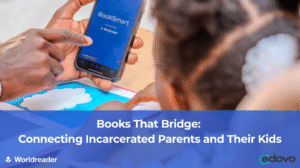For students to thrive in school and beyond, excelling at traditional academic subjects isn’t enough. Social-emotional learning (SEL) is considered an essential methodology to support children as they grow and overcome everyday challenges.

Addressing students’ social and emotional needs in the classroom is crucial now more than ever. During the COVID-19 pandemic, isolation and feelings like fear and grief have been traumatizing for children, who lacked in-person support from peers and teachers due to school closures. As the school year starts and students return to the classroom, educators and families should prioritize SEL to help children recognize, manage, and express their emotions.
With self and social awareness, responsible decision-making, and positive relationships at its heart, SEL helps children harness the power of empathy, emotion management, and collaboration to lead a healthy life. SEL has been proven to positively impact a child’s mental well-being as well as lifetime academic and employment outcomes.
SEL and academic outcomes
Research shows that SEL makes a long-term difference in a child’s life. The positive impact of SEL spans from academic success to mental well-being and civic engagement. Children exposed to SEL education stay longer in school, know how to recognize and manage their emotions, and communicate better with their peers in and outside the classroom.
A meta-analysis of 213 different studies concluded that comprehensive SEL interventions can increase students’ academic performance by 11 percentile points, even when programs take time out of the school day. As grades and achievement test scores improve, classroom behavior and emotional problems are also tackled. It isn’t only about school – when SEL is part of a child’s education, the whole community reaps its benefits.
UNESCO MGIEP puts it this way:
“Research has established that social and emotional competencies early in life — such as self-management skills in children five years of age — are better predictors of major young adult life outcomes such as health and financial success, than traditional academic metrics of grades and standardized test scores [. . .] Early interventions to promote SEL clearly provide a return on investment that far exceeds by several-fold the cost of such programs.”
Reading feelings: the importance of stories from emotional to social literacy
SEL and reading skills positively affect each other. On one hand, identifying with characters and feeling passionate about their stories is likely to make a child keener to continue reading. On the other, books and SEL reading activities can help readers take important learnings they find in stories into their own lives.
Stories offer the unique opportunity to walk in someone else’s shoes. Even when that someone lives in a very different place, environment, or even time from our own. No matter their setting, great books give us the ability to ‘read’ a character, and hone the skill of ‘reading’ ourselves, others, and our interactions. Plus, they provide inspiration to start important conversations with our friends and family.
Building from story to self to others, books make us literate in the art of living with ourselves and in society – in other words, they can be exceptional SEL materials.
Worldreader and My Special Word for SEL
Because we believe that readers build a better world, at Worldreader we strive to provide children and their communities with the resources they need to experience the joy of reading while building literacy and life skills. Our approach empowers children to develop digital, emotional, and reading skills as they explore a free library of books and reading resources at their fingertips.
We recently partnered with My Special Word, an organization that harnesses the power of positive words to encourage children to be their best selves, and created a unique SEL-focused book collection. Books in the collection explore positive words, values, and behaviors that children and families can discover through stories, and encourage children to reflect on the power of words as they identify a special word to live by.
As Dwight Smith, co-founder of My Special Word, explains:
“If we change the words we use, we can change the conversations. If we change the conversations, we can change behaviors. And if we change behaviors, we can change the world.”
Find more information about the collection in the video below:
➤ Partner with us to support your students’ social and emotional needs at home and in the classroom.
➤ Support our work to empower children in the US and around the world through reading.




